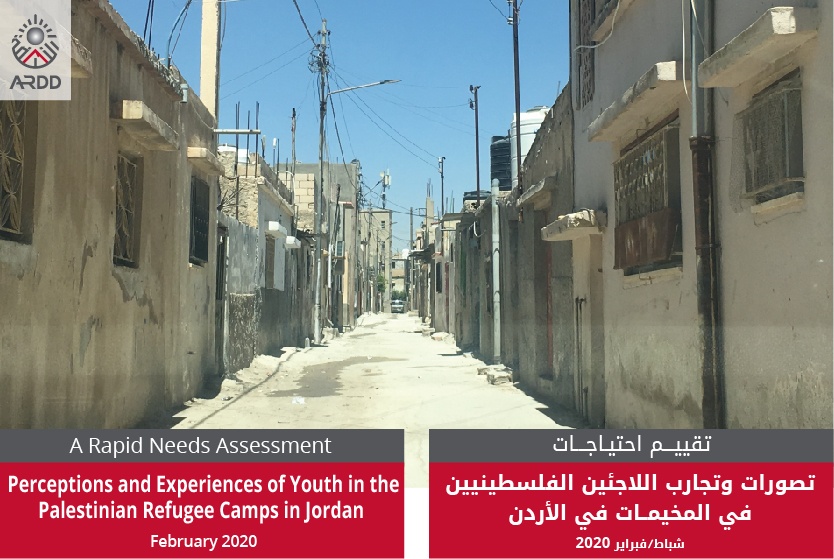The Jordanian government, the United Nations Relief and Works Agency for Palestine Refugees in the Near East (UNRWA), and the Camp Services Committees / Department of Palestinian Affairs in Jordan have exerted tremendous efforts over more than 71 years to support Palestine refugees. However, an evaluation of the current situation is needed to advocate for the support and development of these efforts. This needs assessment was commissioned by ARDD with the intention of identifying the evolving needs in Palestinian refugee camps in Jordan in the current context of economic slowdown and the potential impact on the services in the camps and the well-being of young camp dwellers.
The specific objective of this assessment is to provide updated insights about the socio-economic conditions and needs of Palestinian refugee youth in the refugee camps in Jordan. This is achieved by exploring perceptions and experiences of young Palestinian refugee men and women, complemented with information and perceptions of workers in selected Camp-based organizations. The assessment aimed to answer two key questions related to the youth’s perceptions and experiences of trends in socio-economic conditions and the implications on their psychological well-being, taking gender differences into account, and to explore what kind of interventions are needed to support Palestinian refugee youth that could contribute to positive change and mitigate potential risks.
The findings of this needs’ assessment show that many of the problematic issues from the 2011 data and the 2016 discussions remain and include the following points:
· Statelessness of Palestinian refugees from Gaza (ex- Gazans) remains a problem
· The lack of job opportunities, even among the educate, remains a major issue in all camps especially for young men
· There are prevalent perceptions that there is a problem in quality of and access to in basic higher education in all the camps and child labor is an issue
· In some camps, bullying by school children, especially verbal, is common in schools and the community and is almost normalized
· There are perceptions of insufficiency of health services, especially emergency and tertiary services
· There are insufficient solid waste collection services, and the quality of streets and sanitation in some camps and overcrowding constitute a health hazard
· There is a lack of social and cultural outlets for youth especially women
· There are also perceptions of inequalities and differences within and among the camps
· The conservative social culture is a major challenge for women which restricts their movement to varying degrees and accordingly impacts access to work and education.
· The impact of the socio-economic conditions on psychological well-being include: feelings of emptiness, a dark outlook, hopelessness and frustration, a sense of stigma, a sense of insecurity about the future, hopelessness for change and psychological implications of bullying.
Thus, ARDD calls for building on existing initiatives and developing new ones to contribute to bettering the refugees’ current conditions and opening the door for sustainable improvements that allow them to pursue their potential.


